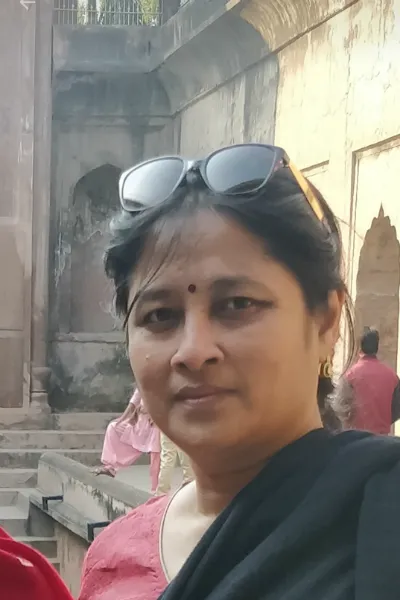My money, your money: Simple steps to get rich this year
Do you know how to grow your wealth, save for a rainy day and lead a financially independent life? Do you know that is one of the most important life skills you need to learn? So, what is the right pathe forward?
The company, Pay It Forward was started more than two years ago by Preetha Wali, Vinita Jain and Anu Seth, to educate people on the importance of personal finance literacy. As another International Women’s Day rolls around, Co-founder, Preetha talks to YS Weekender about managing your finances, how to get rich and much more.

Preetha Wali
YS Weekender: What would your most important money advice to women be on Women's Day?
Preetha Wali: This Women's Day, we would like to tell each and every woman that knowledge and awareness about personal finance is an absolute necessity to achieve true independence and equality.

Women and men need to learn the basics of personal finance
YSW: What are some of the biggest financial difficulties that women face, even today?
PW: Many gender stereotypes abound around finance. The present patriarchal system encourages the belief that it is a male domain and that a woman doesn't even need to know about family finances. This is so strongly ingrained in women, that they tend to shy away from taking charge of their own finances. Despite the changing equation between men and women and the narrowing gender disparity, we still see women reluctant to learn as they feel money is too complex to understand.
Marriage, motherhood and care for the elderly have reduced the number of working years for women. With rising divorce rates, single parenting, women wanting to stay single and the life expectancy of women being more than men – the time has come when women have to handle their finances on their own, at some point in their lives.
If they are not aware of their financial rights, they could easily be cheated. Financial freedom is extremely crucial for women in order to independently take their own life decisions.

Don't spend beyond your means
During our workshops, some women talk about how their spouses don't share details of their exact financial situation, debt burdens, insurance taken, investments made, etc. This is also because many women refuse to take the initiative to understand these matters. A self-imposed limitation like this can be disastrous in the time of an unforeseen tragedy. Financial friction is one of the leading causes of divorce.
YSW: What is the most important financial advice that you like to give?
PW: Always know the financial health of the family - assets owned, whose name they are in, the liabilities, total income and monthly expenses of the family.
Have your own investments, which is separate from your spouse or parent. Health insurance is a must for everyone due to fast-rising health care costs and increasing instances of dangerous diseases. You need to understand personal finance and it’s easy to learn – not, rocket science! Secondly, know your financial rights.
YSW: What areas of difficulty do all of us face in our financial planning?
PW: Since personal finance is not a subject most people have been taught, many men and women make haphazard investments that lead to costly financial mistakes like investing only for tax saving purposes, taking a home loan very early in their career, overspending on credit cards, not keeping an eye on the CIBIL score, not taking adequate insurance, etc.
YSW: How much money should we save to get rich?

Start small, start early: Savings shoud be a priority in a family
PW: The very first step before investing would be to understand your income and expenses and to define your goals. Investing can begin with as little as Rs 500 - Rs 1,000. Every investment must be made with a goal in mind - is the goal short, medium or long-term? What kind of returns does the investment have to give for me to reach my target amount? Do we need to work on this backwards?
Start Small - Start Early! The sooner you start the sooner you will benefit from the magical effects of the power of compounding even with small amounts. While there is no one size fits all, a general thumb rule is to invest at least 20 percent of your salary.
Please park 20 percent of your savings in long term equity mutual funds to get better returns as compared to all other assets, liquidity still being the easiest. If one is disciplined in this saving a good corpus can be created within 10 years to fulfill some goals. For starters 10- 20% should be in savings and this portion should slowly be increased annually grow to 50% as you go up the career ladder.
Early in your career, it is unlikely that you would have a lot of money to part with. Nevertheless, we encourage you to start early. ELSS (Equity Linked Saving Scheme) is a good way to begin as one the risk averaging is better when you begin early. Being an equity product, the potential to gain from power of compounding is better over a long time period and it gives a tax benefit too. So that’s three birds with one stone.
Mid-career employees should take stock of their goals and ensure proper diversification of financial assets to generate sufficient returns.

Regular savings in the right places can lead to wealth
The usual thumb rule is 100 – one’s age = percentage of equity allocation. So, for instance, if you are 30 years old, you need to use 70 percent of your savings into equity mutual funds and 30 per cent in debt funds. Distribute equity into large cap funds and a small portion to mid-cap in order to distribute your risk. By 40s about half your savings should contribute to your retirement corpus. From day one of your earnings, be disciplined, get equity exposure and do not break your savings without reaching your goals.
YSW: What is the first thing everyone should do when money comes in?
PW: The very first thing that one needs to do is allocate the amounts towards needs, wants and investments. The regular expenses that we cannot do without are the basic needs (food, clothing, rent etc). The little luxuries of life are our wants (buying a vehicle, going on a holiday, etc). Investments are what we make to grow our income into wealth that will be used in the future and can serve as protection for oneself and one’s dependents. Once the plan is clear, automate your investments. Let that become your first expense.
YSW: How do you learn to follow a budget?
PW: One of the best ways to follow a budget is to put your savings and investments into auto debit. This way the moment the salary comes into the account, it goes into savings and investments and we are left to make do with whatever is left. With that, we can have different envelopes for different expenses under needs and wants.
YSW: What kind of workshops do you hold and what do you aim to achieve from them?
PW: Our workshops aim to provide a basic awareness of personal finance in a simple, jargon-free, customised and interactive way. There is a huge lacuna among men and women in understanding the very basics of money management. It’s not a subject taught in schools or colleges nor does it typically form a part of the dinner table conversation at home. This means that most people, men and women, rely on either a friend, relative, media, agent or financial advisor when they first start out on their financial journey – and it becomes a process of trial and error that leads to costly mistakes often. This means that people are taking financial decisions without knowing how to do it!
YSW: And finally, what is your opinion on traditional methods of saving money and what should we invest in?
PW: There is no ‘one size fits all’ in finance. The best way to look at investments is to understand your present expenses, the lifestyle you wish to lead, your dependents and other obligations that need to be fulfilled. With this in mind, one should keep the life goals on a timeline and plan as per your short-term needs and long-term needs. While everyone needs health insurance, one must take life/term insurance if one has dependents. Fix deposits (FD) are a good place to park money needed for the short term and for contingencies. Equity Linked Savings Scheme (ELSS), Public Provident Fund (PPF), etc. are all good for saving tax. Mutual Funds could give high returns if one holds them for the long-term and are a good way to create wealth.







